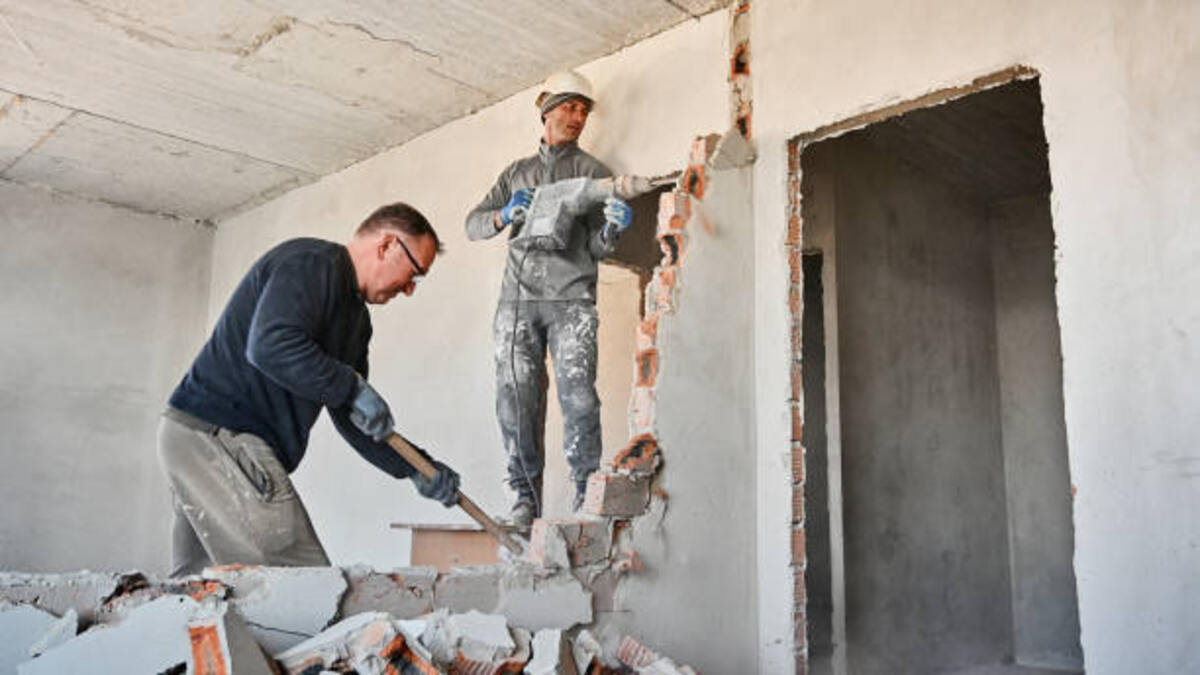Demolition workers use explosives and heavy machinery to demolish old structures that block space for new development in congested urban environments, clearing away any obstructions to new construction. The best guide to finding Main Street Demolition Long Beach.
Work at this facility can be dangerous and noisy, yet it is immensely satisfying to watch a wrecking ball smash through an old brick wall or set off an explosion with dynamite.
They Have Specialized Equipment
Demolition is a highly specialized field that requires unique equipment not often seen elsewhere. These machines are usually large and dangerous, so they should only be operated by professionals with extensive training in safety procedures.
Excavators, bulldozers, cranes, and wrecking balls are the primary pieces of demolition equipment. Furthermore, crews must also have ladders, wheelbarrows, and trucks on hand to haul away debris after each job has been completed. By choosing suitable machinery for each task, hiring crews can become more efficient and reduce costs than using traditional manual methods alone.
Before demolishing any building or structure, a team of experts will thoroughly assess it to identify the optimal approach to demolition. This may involve reinforcing certain areas, removing hazardous materials, or taking other safeguards to protect nearby buildings and people. Some structures are demolished due to environmental considerations – for instance, when they become unsafe due to natural disasters or are no longer fit for human occupancy.
Specialized demolition equipment can significantly decrease landfill waste. Concrete crushers enable demolition companies to reuse bricks and concrete materials in a more eco-friendly way than simply throwing them out. Furthermore, using equipment explicitly tailored to each task helps speed up work completion times significantly.
They Are More Efficient
Traditional demolition jobs involve using explosives and heavy machinery to demolish buildings and structures. While this work is dangerous and complex, modern equipment makes the process faster than ever – professional demolition contractors can assist you in planning your project using efficient methods that reduce risk while saving both money and time.
Your demolition contractor must consider all utility lines on-site during the planning stage, such as electricity, gas, water, steam sewerage, or any other service that could potentially impede or slow demolition works. This includes electric lines, natural gas lines, telephone wires, or any other lines that should be marked before starting demolition works. These must be identified so they can be safely shut off or capped before any excavation takes place.
Professional demolition contractors should also consider any asbestos—or lead-containing materials on a property located in an urban environment and ensure it complies with local ordinances.
Demolition is an essential step in the construction process, yet it can also pose potential health and environmental hazards. Therefore, it’s crucial that a qualified demolition company that adheres to industry best practices and all relevant regulations be chosen as your demolition contractor. When selecting your demolition company, look for one with years of experience, proven safety records, and licensed and insured coverage in your region.
They Are More Cost-Effective
Demolition work can often be more cost-effective than other types of work. Requiring less labor and equipment than new construction, demolition is usually faster and can save money overall. Deconstruction can further bring costs down by carefully disassembling materials for reuse later.
When it comes time to demolish a structure, this can be done using explosives or taken apart with cranes and wrecking balls – but this method of construction can be hazardous, creating dust clouds filled with debris and vast piles of dirt in its wake. Therefore, professional assistance should always be sought.
An estimator can use different techniques to ascertain the precise amount of material to be removed from a site, including direct field take-off (which involves team members physically exploring the area around the site and taking measurements), indirect “rules of thumb,” and experience to ascertain volumetric figures for removal projects. One such direct “field take-off” technique uses physical measurements taken during team members’ physical walks around to view any restricted field conditions that might hamper average, unrestricted production. Observing pedestrian and equipment traffic patterns on roads used during production activities also provides critical data. Estimators can use basic, proven rules of thumb (based on previous project conditions and results as well as experience) in their estimates.
They Have Specific Industry Experience
Demolition is an intricate skill that takes many years of experience to master. It involves many technical areas, ranging from construction and physics to electrical and plumbing, as well as interpersonal skills that ensure the safety of both crew members and the public. Being a demolition contractor requires tremendous amounts of experience and specialized training from leading professionals in these areas.
Demolition contractors must possess both industry experience and licensure/insurance to operate legally and safely. This is particularly crucial if they intend to use explosives that are subject to stringent regulatory controls. One way of verifying their qualifications would be to search their website or social media pages for proof of insurance policies held.
Demolition workers specialize in dismantling structures and buildings using various tools, from manual hand tools such as sledgehammers to heavy wrecking machines. Their job requires strong strength, stamina, vision, and hand-eye coordination, as well as familiarity with any laws relating to demolition procedures and identification of reusable materials.
Most demolition experts begin their careers by completing an apprenticeship program, which provides both on-the-job training and academic studies at trade schools or colleges. After this initial phase, many continue their studies under senior demolition professionals by joining unions or operating engineers. When using explosives for demolition, blasters drill strategically placed holes before filling them with dynamite to cause them to implode.

